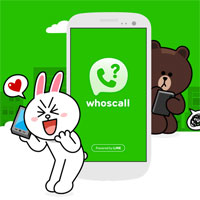- California Assembly OKs highest minimum wage in nation
- S. Korea unveils first graphic cigarette warnings
- US joins with South Korea, Japan in bid to deter North Korea
- LPGA golfer Chun In-gee finally back in action
- S. Korea won’t be top seed in final World Cup qualification round
- US men’s soccer misses 2nd straight Olympics
- US back on track in qualifying with 4-0 win over Guatemala
- High-intensity workout injuries spawn cottage industry
- CDC expands range of Zika mosquitoes into parts of Northeast
- Who knew? ‘The Walking Dead’ is helping families connect
Naver’s spam-blocking app tops 10 mln downloads
(Yonhap) Naver Corp., the operator of South Korea’s most visited portal, said Wednesday its spam-blocking application posted 10 million downloads, adding to its success in the app market along with its global-hit LINE messenger.
The app “Whoscall” provides users with detailed information on suspicious incoming calls and messages based on a database of 600 million numbers.
Downloaded by users in nearly 40 countries, the app is serviced in 17 languages, including English, Korean, Japanese, Chinese, Arabic and Indonesian.
The app’s popularity reflects rising social awareness of voice phishing and SMishing, which use phone calls or text messages to lure people to bogus websites with malignant codes and dupe them into revealing their bank or credit card information.
Last month, South Korea’s Financial Services Commission revealed that some 20 million clients’ personal data, including bank account numbers, addresses and credit ratings, had been leaked from three credit card firms — KB Kookmin, NH Nonghyup and Lotte.
Naver’s affiliate Camp Mobile Corp. acquired Taiwan’s Gogolook, which first launched the app in July 2012.
Naver has been expanding its presence in the global application market, with its LINE messenger posting 360 million users as of Feb. 6. With the home market dominated by KakaoTalk messenger service by Kakao Corp., it was mostly downloaded in overseas markets.













